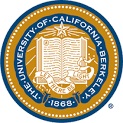 ME119/ME219
ME119/ME219
Fall 2024
Introduction to MEMS(Microelectromechancal Systems)
Instructors:
Class Meetings
- Lecture, Tuesday and Thursday, in-person @ 3108 Etcheverry, 12:30-2:00pm
- Office Hours, Tu 3-4pm, Th 2-3pm
- TA Office Hours, Mondays 4-5pm, Sutardja Dai Hall 668
Classroom Policies
- Inclusion:,We are committed to creating a learning environment welcoming of all students that supports a diversity of thoughts, perspectives and experiences, and respects your identities and backgrounds (including race/ethnicity, nationality, gender identity, socioeconomic class, sexual orientation, language, religion, ability, etc.)
- Berkeley Honor Code:As a member of the UC Berkeley community, I act with honesty, integrity, and respect for others
- Resources:
Various Links
Course Descriptions:
Fundamentals of microelectromechanical systems including
design, fabrication of microstructures;
surface-micromachining,
bulk-micromachining, LIGA, and other micro machining processes;
fabrication principles of integrated circuit device
and their applications for making MEMS devices;
high-aspect-ratio microstructures;
scaling issues in the micro scale (heat transfer, fluid mechanics
and solid mechanics);
device design, analysis, and mask layout
Prerequisite: Physics 7B,
Text Books:
- R.C. Jaeger, "Introduction to Microelectronics Fabrication," 2nd edition, Addison-Wesley, 2000. (required)
- S. Senturia, "Microsystem Design," Kluwer Academic Publishers, 2000. (reference)
- M. Madou, "Fundamentals of Microfabrication," CRC Press, 1997. (reference)
- T.R. Hsu, "MEMS & Microsystems Design and Manufacture," McGraw Hill, 2001. (reference)
- G.T.A. Kovacs, "Micromachined Transducers - Sourcebook," McGraw-Hill, 1998. (reference)
- J.P. Uyemura, "Principle Desing of CMOS Integrated Circuits Using L-EDIT," PWS Publishing Company, 1995. (reference)
- S.M. Sze, "Semiconductor Sensors," John Wiley & Sons, Inc, New York, 1994. (reference)
Projects:
An individual final project is required. The project proposal is due at the middle of the semester and an oral project presentation is to be held at the end of the semester.
Grading:
- 25% homework and participation (paper reading)
- 10% MUMPs Design
- 30% 2 exams (10% Quiz I, 20% Quiz II)
- 35% final project (concept 10%, oral presentation 10%, written report 15%)
 Class Schedule
Class Schedule
 Selected Papers
Selected Papers
 Supplementary Webside
Supplementary Webside
 Projects
Projects
Last updated: August 15, 2023 by Liwei Lin
 ME119/ME219
ME119/ME219  ME119/ME219
ME119/ME219